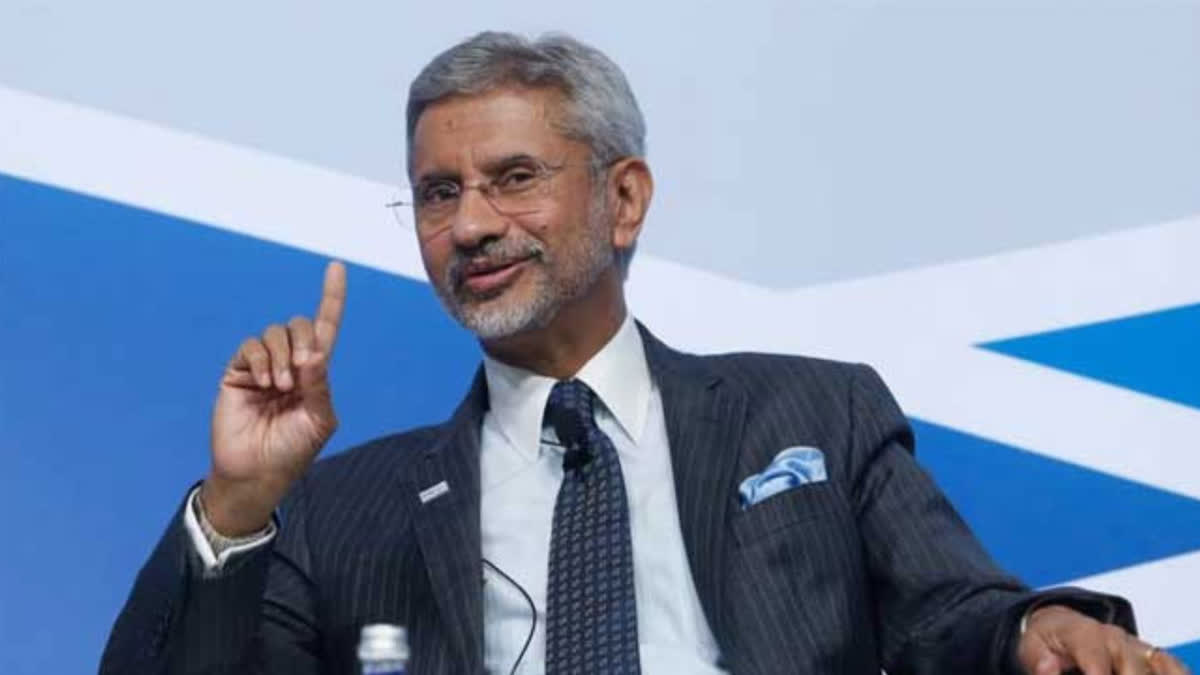Washington : External Affairs Minister S Jaishankar has said India and Canada should talk to each other to resolve their differences over the death of a Khalistani separatist, but the larger issue of the Canadian government's "permissiveness" to terrorism, extremism and violence must be flagged and addressed.
During an interaction with Indian journalists here on Friday, he said India was ready to look into the information related to Canada's allegations of the "potential" involvement of Indian agents in the killing of Khalistani extremist Hardeep Singh Nijjar on June 18 in British Columbia. The issue is as follows, which is that the Canadians have made some allegations. 'We have pointed out to them that this is not the government of India's policy, but if they are prepared to share with us specifics and anything relevant, we are also open to looking at it. So in that sense, that's where the matter stands', Jaishankar said.
"But what we do not want to see is an incident treated in isolation because then that somewhere does not convey the right picture," he said. "Let's not normalise what is happening in Canada. What is happening in Canada, had it happened anywhere else, do you think the world would've taken it with equanimity?" he asked.
Jaishankar said India has had an ongoing problem with Canada and its government for some years now, and the problem really revolves around the "permissiveness" regarding terrorism, extremism and violence. This permissiveness is also reflected in the fact that some important extradition requests have not been responded to from their side in the fact that there are individuals and organisations who are clearly involved with violence and illegal activities in India who themselves declared it. I mean it is not a secret that they continue to carry on with their activities in Canada, he said.
Jaishankar said one of the problems is that no incident is isolated and the totality as there is a context for everything. "There are multiple problems out there. So, I guess in the case of individual incidents, the concerned governments will have to talk to each other and see how they sort of take it forward, he said.
Also Read : US shutdown looms: Who's hit, what's next? Explainer
But there is a larger issue. "And I think it's important that the larger issue should be flagged. The larger issue is this permissiveness that I have spoken about," he said. He said he discussed the ongoing diplomatic row between India and Canada with US Secretary of State Antony Blinken and National Security Advisor Jake Sullivan.
Most important, the fact that our diplomatic missions and our diplomatic personnel have been consistently and continuously intimidated in Canada to a point where today it is not safe for them really to carry on with their work. "The fact that we've had to temporarily suspend our visa operations, it's not something we would've liked to do. It is just that they made it very difficult for us to operate those services, Jaishankar said.
Tensions flared between India and Canada following Canadian Prime Minister Justin Trudeau's explosive allegations of the "potential" involvement of Indian agents in the killing of Nijjar on his country's soil. India had designated Nijjar as a terrorist in 2020.



